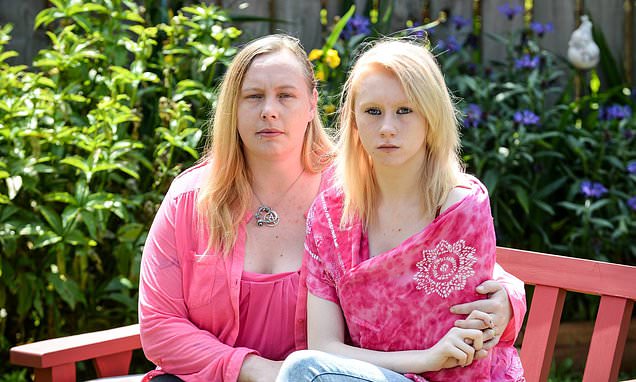I’m a hormone expert and these are 7 signs your partner is going through the MANopause
- Men also see a change in hormones as the age, but it’s not as extreme as women
- Must read: I’m a psychiatrist: Here’s what women don’t know about hormones
The female menopause and its symptoms are widely documented, including night sweats, hot flushes, memory fog and low energy.
But now an expert has revealed that men can also go through a change in their mid-life – saying 90 per cent of males will go through a ‘menopause’ stage.
Dr Harghandiwal, of the Zen Clinic in Knightsbridge, told FEMAIL he typically treats men over the age of 40 who have experienced hormonal changes, driven by a gradual drop in the sex hormone testosterone.
An estimated 10-25 per cent have testosterone levels that are considered to be low.
Symptoms of this male menopause – or manopause – range from a rise in stress to feeling deflated in the bedroom.
An expert has revealed that men can also go through a change in their mid-life – saying 90 per cent of males will go through a ‘menopause’ stage (stock image)
Dr Harghandiwal said: ‘They are tired, depressed, lack focus, their libido drops, they have erection problems.
‘I tell the patient that 90 per cent of us go through the male menopause, which is testosterone deficiency, whether we like it or not.’
He says that testosterone reduction in men is strongly linked to other factors including obesity, stress, the use of medication and chronic diseases.
Without these additional factors, most men will retain the same level of testosterone throughout their lives.
So do you know how to spot if your man is suffering from the manopause? Here Dr Harghandiwal revealed the seven different symptoms…
1. Mood swings and irritability
It’s a common belief that too much testosterone can make men angry. But in fact, too little testosterone can also cause mood swings and irritability.
Speaking to Everyday health, Edward Levitan, co-founder of Visions HealthCare in Wellesley, said: ‘Low testosterone is a major source of mental health issues in men.
‘Cells in the brain have testosterone receptors that significantly affect mental health.’
He added that men with low testosterone can experience fatigue and commonly have mood swings.
2. Depression
While experts aren’t sure why testosterone has strong links to mental health, they are sure that it does.
Several scientific studies have shown the link between low testosterone, stress and depression.
A study of more than 600 elderly Dutch men found a significant association between low testosterone and depression.
Similarly a study in Iran of more than 800 elderly men also showed that higher testosterone levels were found in men who had the least depression.
However, scientists also point out that other problems associated with a drop in testosterone, such as erectile dysfunction and weight gain, can also cause low self-esteem, which might lead to anxiety and depression.
3. Loss of muscle mass and reduced ability to exercise
According to Healthline, testosterone is one of many factors involved in the development of muscle bulk and strength.
The hormone increases neurotransmitters, which encourage tissue growth and makes it easier to build muscle through exercise.
And it is also important in bone density, telling the bone marrow to manufacture red blood cells.
Men with very low levels of testosterone are more likely to suffer from lower bone density, which can cause bone fractures and breaks.
But experts also point out that a lack of testosterone can cause a man to have low energy, and therefore not exercise.
4. Developing a large belly or ‘man boobs’
Testosterone also plays a role in fat metabolism, helping men to burn fat more efficiently.
Dropping levels of testosterone can cause an increase in body fat, and can also turn muscles into fat.
As testosterone falls and muscle mass declines, a man’s metabolism also slows down.
And according to The Mayo Clinic, this can cause a domino effect, paving the way for weight gain and stubborn fat which wont budge, even with the best efforts to eat right and work out.
5. A general lack of enthusiasm or energy
Testosterone plays a role in certain behaviours, including aggression and dominance.
It also helps to spark competitiveness and boost self-esteem. Higher testosterone facilitates power-motivated individuals’ to pursue dominance.
In contrast, low testosterone levels can affect a man’s motivation for many reasons, including because the general system is just not functioning properly.
Lower testosterone is known to effect levels of enthusiasm or confidence.
6. Difficulty sleeping (insomnia) or increased tiredness
According to Baptist Health, there is also a strong link between sleep deprivation and testosterone production.
As part of our natural circadian rhythm, testosterone levels rise during sleep. Studies have shown that sleep deprivation can cause a significant decrease in testosterone production.
Low testosterone also makes insomnia worse.
Researchers have found that as testosterone levels drops, the amount of cortisol – the body’s primary stress hormone – increases.
As one of cortisol’s main functions is to increase alertness, this can result in shorter sleep cycles and shallower sleep.
7. Poor concentration and short-term memory
As testosterone levels decline, neurotransmitters begin to malfunction, which can cause momentary lapses in memory.
Cognitive function such as remembering, thinking and reasoning can all decline.
Lower testosterone levels are known to lower a man’s ability to concentrate and can cause a lack of energy.
Studies have shown that testosterone treatment in older men may improve cognitive functioning, especially memory.
Research has also shown that people with low testosterone are more prone to dementia in later life than those with mid-range levels.
How to treat low testosterone levels
Testosterone levels can be measured by blood tests at a GP surgery.
If levels are low, there is evidence to show therapeutic doses of testosterone – in injection or gel form – can be beneficial.
A 2009 study found restoring the hormone to the right level improved sexual function in middle-aged men.
It also improved cognitive function in older men.
Experts say a healthy lifestyle is key to avoiding a dip in levels, however.
Exercising regularly will build muscle strength and improve aerobic capacity.
A healthy diet and stress management can also help mitigate symptoms.
Source: Read Full Article



